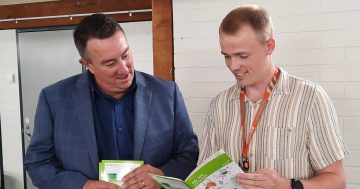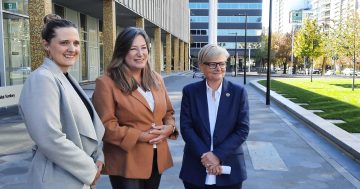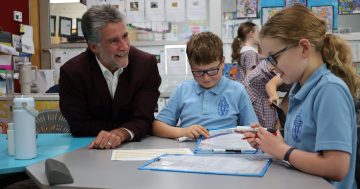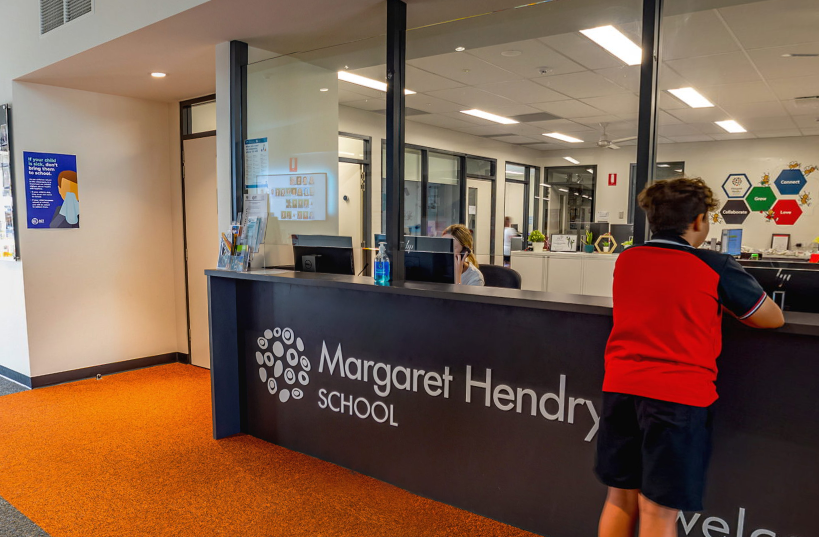
Margaret Hendry School was opened in 2018 and the expansion was finalised in August 2023. Photo: ACT Government.
Special purpose reviews into two Canberra public schools have revealed issues with disruptive behaviour, poor learning outcomes, understaffing and high staff turnover.
The review into Kingsford Smith School (KSS) in Holt found some students were engaging in “vandalism and discriminatory behaviours” and that there was a “lack of respectful relationships” between students and staff and their peers.
“Staff report small groups of students that engage in targeted harassment of staff and discriminatory behaviours with no known consequences. In some situations, there is significant bystander student participation,” the report said.
The review team interviewed school leaders, teachers and staff, students, parents and carers over four days in November 2022.
“Some students report feeling unsafe across a range of school settings,” the report said.
Students also said lessons were not engaging, there was a lack of feedback, and teachers were focused on behaviour management and engagement.
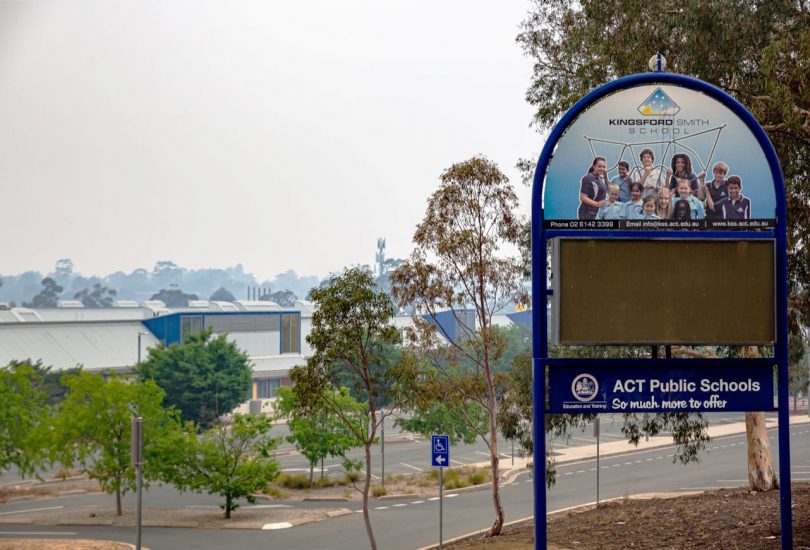
In term 2, staff absences at Kingsford Smith School at Holt peaked at 19.3 per cent. Photo: Supplied.
The review identified staff absences as a major issue at KSS.
“School staff describe the preferred case management approach for certain students as problematic, in part due to staff and executive shortages,” it said.
KSS has experienced consistently higher than average staff absence rates, which led to “unpredictability” in the teaching and learning environment. The average rate of staff absence peaked at 19.3 per cent in term 2, compared with the average among ACT public P-10 schools of 12.9 per cent.
The June 2023 review of Margaret Hendry School (MHS), a primary school in Taylor, also found staffing issues were a concern, driven largely by rapid growth in enrolment rates resulting in staffing pressure and high turnover.
The report noted the school was facing difficulties attracting experienced educators, with 50 per cent of the current school leaders considered ‘early career educators’ (in the first three years of their career).
At the same time, the high turnover meant leadership staff were often required to fill teaching roles.
These pressures have meant new teachers are unable to receive the training they need.
“Feedback, coaching and mentoring for new educators is inconsistent and impacted by staffing pressures and school leaders covering classes,” the report said.
The review also found issues in teaching practice, with a lack of common understanding among teachers of the pedagogical approach at MHS, which includes the ‘workshop model’ and inquiry-based learning.
“Staff are aware of the learning gaps in fundamental literacy and numeracy skills but feel structures do not support improved student outcomes,” it said.
“Staff … express a lack of support in how to implement a balanced approach to teach literacy and numeracy that included explicit teaching.”
Mark Huxley, the Education Directorate’s executive group manager of school improvement, said the directorate has already responded by increasing literacy support for MHS, such as literacy blocks at the start of each day and a booster program for students who need additional help.
The review also found cases of disruptive behaviour, with data indicating a high number of students with a high occupational violence risk assessment relative to similar schools.
It found high levels of physical aggression among kindergarten students and low attendance for many students, especially in kindergarten.
“A high number of absconding and noncompliant incidents during learning time may suggest a level of disengagement from some students,” the report said.
The review said staff described the school as “at times overwhelmed”, meaning staff were unable to effectively access or implement workplace health and safety support.
“What’s really clear through the reviews is that the consistency of teachers in practice as well as wellbeing and behavior responses was varied at both schools,” Mr Huxley said.
“One of the themes definitely was around teaching staff availability, which made implementing some of the changes a little bit harder in these schools. We are in the middle of a national teacher shortage, and while the ACT is well positioned compared to our jurisdictional counterparts, we’re not immune to those pressures.”
The reviews outlined recommendations for the two schools, which should be integrated into an implementation plan.
The recommendations focus on building consistency and unity among staff, developing a more coherent pedagogical model and improving staff and student wellbeing.
It recommended KSS strengthen consistency in staff expectations and practice, ensure staff undertake a robust induction and development program, and develop a suite of evidence-based pedagogies across the school. It also recommends the school improve its physical amenities, learning spaces and indoor and outdoor areas.
The review team recommends MHS improve strategic oversight and planning, build a more united leadership team, strengthen links between curriculum, teaching and assessment, and implement whole-of-school practices for learning and wellbeing.












